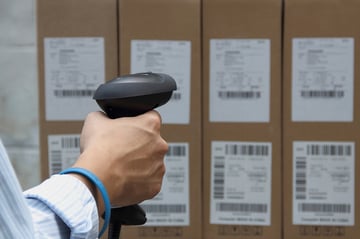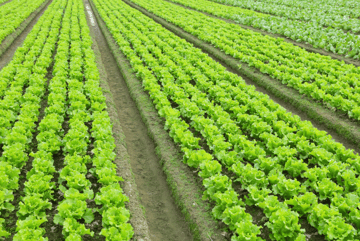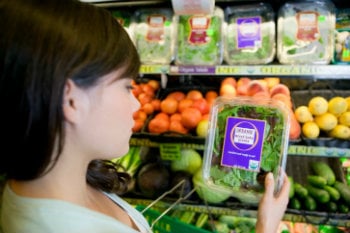The sustainability movement in the food industry is accelerating. Customers are making more informed, climate-conscious decisions, and food companies are finding it essential to adjust their impact, too. The added pressure of global government regulations pushing for greener business practices are also pushing the needle forward. After all, according to the United Nations, nearly a third of greenhouse gas emissions are a result of our global food system.
These mounting pressure points have resulted in some impressive movements across the food supply chain to adopt more sustainable practices. And even in 2023, as the world still grapples with years of supply chain disruptions (some of which are directly caused by climate change), there are efforts at every level of the food industry to use technology as a tool to reduce their environmental impact and promote sustainability. Let’s look at three examples of how food businesses are making a difference in unique ways.
Restaurants: Transparent Sourcing and Sustainable Menu Labeling
Customer purchasing behavior has changed a lot as climate change has become a larger concern for many. And restaurants are starting to see some of those changing behaviors firsthand with customer orders.
In 2018, the FDA required restaurants with over 20 locations to begin displaying nutrient information for the food on their menu. This push for menu labeling eventually lead to customers asking more questions about the food they eat and changing their eating habits to be more health conscious. Now, customers are also starting to ask where the food was sourced, and restaurants are adjusting their menus again to accommodate their customers’ curiosity.
While not required by any law in the US, some restaurant menus are voluntarily displaying the emissions associated with specific menu items to inform customers. And many customers are changing their food choices as a result. A research study published in the Journal for the Association for Consumer Research found that carbon footprint information on menu labels does change consumer behavior for the better. The study looked at menus that list CO2e emissions, low emission threshold items, and stop signs that indicate foods with high emissions. The study noted that the menu emission labeling had the added benefit of customers perceiving the restaurant to be more environmentally conscious.
Food Manufacturers: Reducing Food Waste with Date Labels and Incident Tracking
Consumers place a high amount of trust in their food product labels. A study from Purdue found that the top three labels consumers trust are utilitarian: the ingredient list, expiration date, and Nutrition Facts label. Other types of labels, like health, all natural, or organic claims, were seen as less favorable by consumers.
While Nutrition Facts labels and ingredient labels are regulated by the FDA, expiration dates and best-by dates are not currently standardized or regulated (with the exception of baby food). As a result, consumers may be throwing out food that is still safe to eat and increasing food waste. However, Congress is looking to change that soon with standardized date labeling introduced in the Food Date Labeling Act. The hope is that standardized date labeling will help consumers reduce food waste through accurate and useful information about the food they’re purchasing.
While the Food Date Labeling Act is intended to help consumers, the regulation, once passed, will also aid food businesses in reducing their food waste. Already, food companies are trying to reduce food waste by using software that helps them track food quality incidents (like spoiled food or mislabeled expiration dates), identify spoiled or contaminated batches at the lot-level, and withdraw impacted products rapidly when needed. In turn, software like FoodLogiQ’s Quality Management is being used to help food businesses minimize future food quality issues by identifying trends and offering actionable improvements.
The Overarching Impacts of Traceability
Across the food supply chain, food businesses at every level are working to improve food traceability, which in turn can improve sustainability efforts. At the regulatory level, the US government is taking strides to improve food safety and traceability with the final rule of the Food Safety Modernization Act (FSMA) Section 204, which outlines traceability recordkeeping requirements for certain foods along the supply chain. While much of this effort is made to improve food safety for US consumers, it is also pushing the needle forward on sustainability.
Traceability systems allow food businesses to identify and track food products along the supply chain to make it easier and more efficient to identify potential food safety issues the moment they happen. In turn, by tracking at the batch-lot level, companies can reduce food waste by only pulling the products impacted by an incident or foodborne illness. These systems have the added benefit of increasing supply chain efficiency, too, which can reduce overproduction and provide better inventory management.
And in many ways, traceability systems can help with the other sustainable efforts, like menu labeling. If restaurants want to trace their food products back to the farm, traceability systems can help them understand the emissions used along the way and identify where the food was sourced.
Reduce Your Environmental Impact with Technology
Overall, food safety is an essential component of sustainable food systems. By providing consumers with information about the sourcing and sustainability of their food, standardizing date labeling, and implementing traceability systems, we can reduce waste, conserve resources, and promote sustainable food production practices. By working together, we can ensure that our food systems are safe, sustainable, and resilient for generations to come.
Technology solutions can help businesses reduce their environmental impact by improving food safety, reducing waste, optimizing supply chain management, and promoting sustainable production practices. To learn how Trustwell can help your business build a more sustainable and resilient food systems, benefitting both the environment and consumers alike, contact our team to learn about our traceability, labeling, and supply chain management solutions.
Other posts you might be interested in
View All Posts
Food Safety
8 min read
| February 7, 2017
3 Food Safety Stats That Underscore the Need for Traceability
Read More
Supplier Compliance
7 min read
| May 8, 2018
Response Time is Key When it Comes to Mitigating Risks Along the Supply Chain
Read More
Traceability
6 min read
| July 13, 2016

